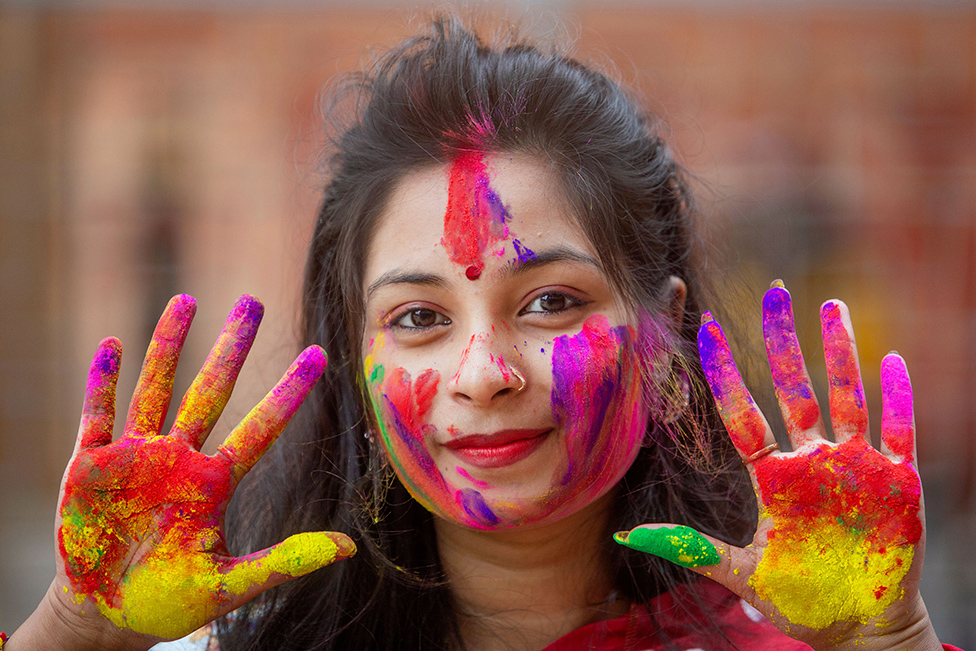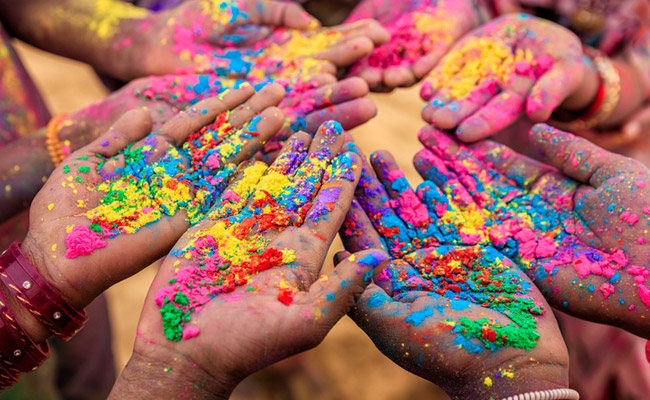:max_bytes(150000):strip_icc()/bhaktapur-nepal-holi-HOLI0219-b713df59f115452baa1374efb3e59ff2.jpg)

)
Holi is a popular and significant Hindu festival celebrated as the Festival of Colours, Love and Spring. It celebrates the eternal and divine love of the god Radha and Krishna. Additionally, the day also signifies the triumph of good over evil, as it commemorates the victory of Vishnu as Narasimha Narayana over Hiranyakashipu. Holi originated and is predominantly celebrated in the Indian subcontinent but has also spread to other regions of Asia and parts of the Western world through the Indian diaspora. Holi also celebrates the arrival of Spring in India, the end of winter, and the blossoming of love. It is also an invocation for a good spring harvest season. It lasts for a night and a day, starting on the evening of the Purnima (Full Moon Day) falling in the Hindu calendar month of Phalguna, which falls around the middle of March in the Gregorian calendar. The Holi festival has a cultural significance among various Hindu traditions of the Indian subcontinent. It is the festive day to end and rid oneself of past errors, to end conflicts by meeting others, a day to forget and forgive. People pay or forgive debts, as well as deal anew with those in their lives. Holi also marks the start of spring, an occasion for people to enjoy the changing seasons and make new friends. Holi is of particular significance in the Braj region, which includes locations traditionally associated with Radha Krishna: Mathura, Vrindavan, Nandgaon, Barsana and Gokula which become touristic during the season of Holi. The Holi festival is an ancient Hindu festival with its cultural rituals. The festival finds color in numerous scriptures, such as in works like Jaimini's Purva Mimamsa Sutras and Kathaka-Grhya-Sutras with even detailed descriptions in ancient texts like the Narad Purana and Bhavishyad Purana. The festival of “holikotsav” was also mentioned in the 7th century work, Ratnavali, by King Harsha.[41] It is mentioned in the Puranas, Dasakumara Charita, and by the poet Kālidāsa during the 4th century reign of Chandragupta II.The celebration of Holi is also mentioned in the 7th-century Sanskrit drama Ratnavali. The festival of Holi caught the fascination of European traders and British colonial staff by the 17th century. Various old editions of Oxford English Dictionary mention it, but with varying, phonetically derived spellings: Houly (1687), Hooly (1698), Huli (1789), Hohlee (1809), Hoolee (1825), and Holi in editions published after 1910.
